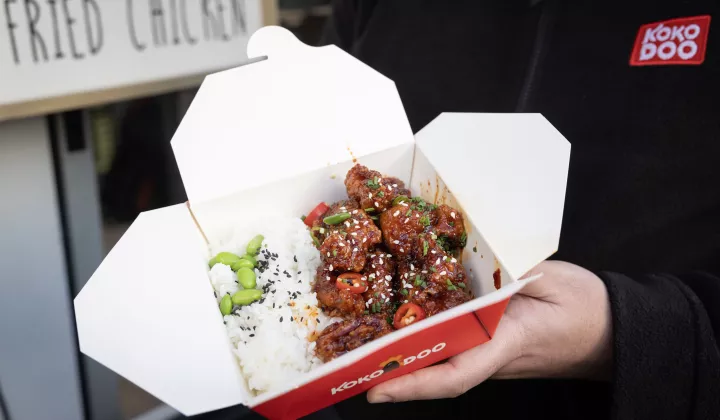
What you'll get from this article:
Hear from Sarah Willingham
Sarah Willingham is one of the UK’s top restaurant entrepreneurs, and an investor and consumer champion. She is best known for her management roles in Planet Hollywood and Pizza Express and as an investor in growing businesses on Dragons Den.
Sarah bought the Bombay Bicycle Club and successfully expanded it from a chain of six restaurants, to seventeen. Here she looks at the rewards and pitfalls of franchising.
Many takeaway owners see franchising as a way to grow their business rapidly, but there’s a lot you need to consider in order to get it right.
Firstly, your business needs to be profitable and your costs need to be under control. Every week your food and labour costs should be consistent, and you should have a 20% profit margin, meaning the cash that you generate should consistently be about 20% of your net sales.
Once you’ve achieved this, you need to make sure you can replicate it. So if one of the main reasons your takeaway is doing really well is because you’re in a great location with plenty of footfall and a dense local population for delivery for example, it can be quite hard to replicate this if you open other units elsewhere.
If you’re considering franchising as a way to make more money, you need to be aware that the margins will be less than what you’re used to. Although you won’t have the expenditure of opening a new site, the best you’re going to get from a franchise is 5-7% of sales back to you as an individual. If your current business is running at 20% profit, you may be better off opening another site.
Pitfalls to watch out for
Remember, the main reason people buy a franchise is because they don’t have the experience – they’re trying to buy what you’ve learnt over the years, so it’s likely mistakes can happen. Franchisees might well breach your franchise agreement and start altering things like your menu. For example, adding kebabs where in fact you’ve sold them a pizza franchise. It can be expensive if you get into a situation where you have to take legal action to protect your name and your brand.
It’s also easy to underestimate how much of your time it will take up. Franchisees are going to want detailed recipes, epos systems, training manuals, health and safety procedures. They’re paying for a ‘cookie-cutter’ business model, and you need to ensure you can deliver that.
Essentially, if you have a very simple set up that is a proven concept; one that’s turning a profit, is easy to replicate – and you don’t want to operate multiple restaurants – then franchising could be for you.

